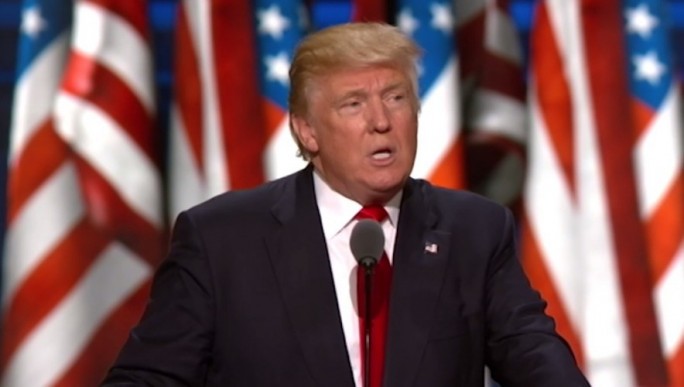
Summer 2019: As the Bitcoin Surge Continues, What Are Regulators Saying ?
Jun 14, 2019, 6:10PM by Chris Madill
by Chris Madill
Bitcoin is surging as the crypto-markets move into Q2 2019, and regulators appear to be keeping ahead of the hype with new regulatory frameworks.
With Bitcoin’s USD value surging throughout Spring 2019, things are once again looking up for the crypto market. The nostalgia of the 2017 bull run now wafts through online forums, subreddits, and market media like the octane-rich fumes of an imaginary Lambo, and would-be crypto-gods are once again primed for their well-deserved moon landings. All of this new momentum is a breath of fresh air for those of us deeply entrenched in the crypto-culture, but we shouldn’t let our excitement for big gains overshadow the real issues in the cryptosphere today.
After all, it’s not 2017 anymore, and many things have changed. 2017 was only the beginning of Bitcoin’s foray into the public limelight, and since then, global regulators have been working diligently to refine the legal frameworks that help to regulate volatile and enigmatic digital assets. So, in case this latest bout of “Bitcoin fever” has blinded you to the most relevant changes within the regulatory landscape today, we’ve compiled an overview of three of the biggest changes happening in the world of crypto regulation.
Financial Action Task Force’s (FATF) “Travel Rule”
Perhaps the most controversial change we will see in 2019 is the implementation of the Financial Action Task Force’s (FATFs) “recommendation 15-7b”. The FATF is a 38 member policy-making authority that aims to protect the global financial system from “money laundering, terrorist financing, and other related threats”, and its 38 members represent most of the world’s largest economies.
The new rule set forth by the FATF is designed to prevent the use of virtual assets to launder money, and it mirrors an existing rule set forth by FinCEN governing U.S. banks who facilitate sizable monetary transactions between two parties, this rule is called the “Funds Travel Rule”, and many have adopted this name to identify the FATFs new recommendation.
Countries should ensure that originating Virtual Asset Service Providers (VASPs) obtain and hold required and accurate originator information and required beneficiary information on virtual asset transfers, submit the above information to beneficiary VASPs and counterparts (if any), and make it available on request to appropriate authorities.
/ FATF Public Statement – Mitigating Risks from Virtual Assets
The new rule will require VASPs to verify their customers’ identities, as well as the identities of the recipients of their customers’ transfers for any transaction over $1,000 USD.
The new rule has been met with stark criticism from crypto-pundits and has been dissected at length by the team at Chainalysis.com for those who want the full analysis. Among the concerns, the most obvious is the fact that blockchains were designed for peer-to-peer transactions with no intermediaries. Requiring VASPs to track all transactions is technically challenging given the lack of identifying information tied to hot and cold wallets. What’s more, if an individual wants to circumvent a VASP's monitoring efforts, it is very easy to just send funds directly to a recipient. This could push crypto further into the dark corners of society and undermine the growing legitimacy of the technology.
FinCEN’s interpretive guidance
In the US, regulators are making it clear that they are looking hard at cryptocurrencies. On May 9, FinCEN issued interpretive guidance clarifying how their existing regulations apply to businesses who deal with virtual currencies. While the guidance document doesn’t actually change any of the laws governing the transmission of cryptocurrencies, it does provide succinct answers to some “grey areas” previously overlooked by exchanges and money services businesses.
For example, FinCEN reminds those involved with the transfer of virtual currencies that they fall under the standard regulations set forth by FinCEN regardless of what form of value they are exchanging, or what technology is used to facilitate the transfer. Basically, if an entity profits from the movement of money, they are a money transmitter and are therefore regulated under the Bank Secrecy Act (BSA).
FinCEN stresses that they have a long international reach. Despite being a US-based regulator, FinCEN possesses the ability to regulate any entity that is dealing with US-based exchanges, so any foreign entity dealing within the US needs to be regulation compliant.
The SEC and Bitcoin ETFs
Bitcoin Exchange Traded Funds (ETFs) are a big deal. If the concept can get a green light in the US from the SEC, it would allow investors to buy into a Bitcoin backed ETF without having to expose themselves to the technical ins-and-outs of purchasing Bitcoin through traditional methods. This would mean money that is flowing through the better understood and more trustworthy markets of Wall Street could be invested into Bitcoin, opening the asset class to a plethora of new investors, helping to legitimize the asset class and drive adoption.
The SEC has been slow on making a decision to allow Bitcoin ETFs to be publicly traded, but they have set a new deadline of August 19 to allow the VanEck SolidX Bitcoin Trust to issue shares. This is exciting news for Wall Street traders turning to crypto, and regardless of the final decision, the SECs ruling will likely have profound effects on the future of Bitcoin.
Conclusion
The global regulation of cryptocurrencies is dramatically gaining traction as 2019 gears up to become another exciting year for crypto-investors. Long gone are the days of murky regulations that are formed well behind the market's growth, as we now face a legal framework that is taking shape rapidly before our eyes. Yes, investors will still deal with ambiguous rules and volatile prices leading to large amounts of risk exposure, but 2019 is proving that regulators have the tools and the power to substantially shape the future of the crypto-market, for better or for worse.
Disclaimer: information contained herein is provided without considering your personal circumstances, therefore should not be construed as financial advice, investment recommendation or an offer of, or solicitation for, any transactions in cryptocurrencies.

















